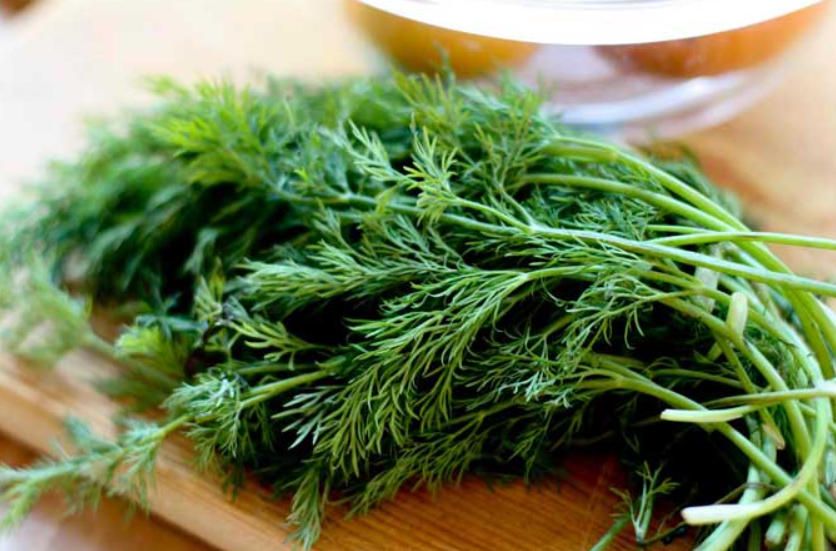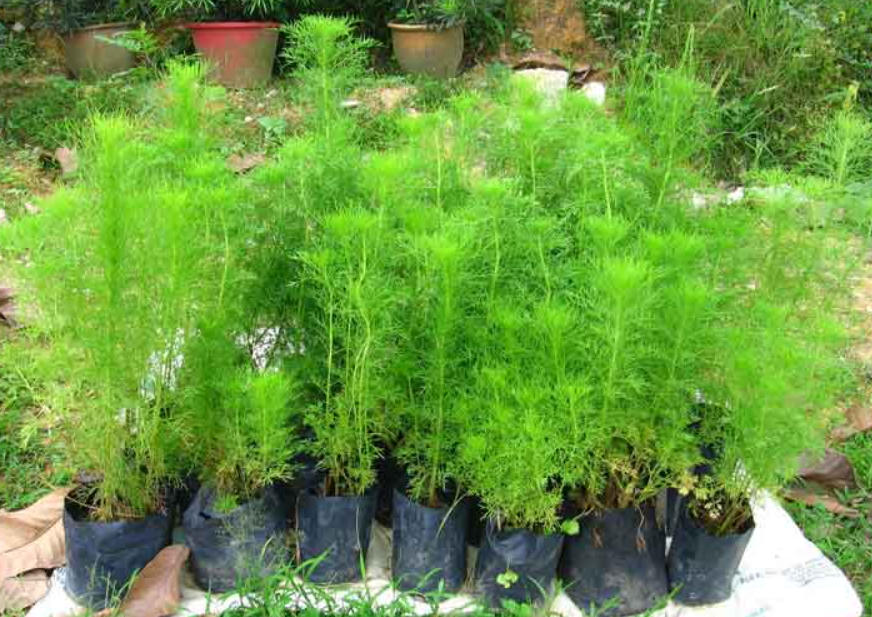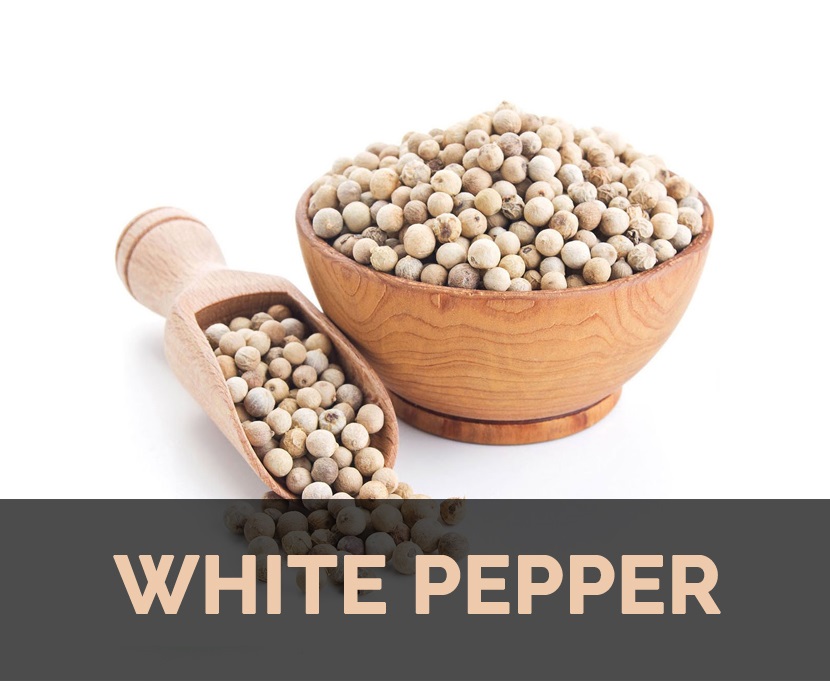Dill has countless properties and many vitamins and minerals in addition to its unique taste. Dill is used in many dishes and in bread, raw, etc. Dill contains many antioxidants, which strengthen the immune system and prevent cancer. Dill also reduces cholesterol a lot. We will introduce you to the health benefits of beeswax in this article.

An overview of properties
There are very few calories in dill. Approximately 43 calories are contained in 100 grams. This small amount of calories contains many nutrients. Vitamins A and C are abundant in dill. In almost every 30 grams of this aromatic vegetable, the body gets 43% of its daily vitamin A and 40% of its daily vitamin C. Yet the story of this aromatic, nutritious vegetable doesn’t end there. Vitamin B6, calcium, iron, magnesium, and folate are also present in this plant.
Aside from vitamins and natural substances, it also contains compounds with antimicrobial properties. Yellow and monoterpenes make up the essence and taste of dill. The smell of dill is caused by monoterpenes, such as limonene, carvone, and anethofuran. Chemopreventive or anticancer properties are associated with the substances mentioned. You should include dill in your diet if you want to avoid cancer. Dill has a variety of properties. Below are some of the other properties of dill:
Do you know all the best properties of dill?
A substance that tastes good, smells good, and is also rich in vitamins, minerals, antioxidants, and anti-cancer properties can be used in salads, vegetables, bread, etc.
1. Properties that are anticancer
DilProperties that are anticancer due to the presence of three monoterpenes (limonene, carvone, anthofran). A monoterpene acts as an enzyme called glutathione s. By stimulating glutathione-S-transferase, they prevent cancer from starting in the body. The enzymatic activity of glutathione is enhanced by monoterpenes. In addition to monoterpenes, dill contains antioxidants and doubles the body’s ability to fight cancer.
2. Antioxidants and dill
Vicenin and kaempferol, which are strong monoterpenes in dill, are antioxidant molecules. Dill binds to the dangerous oxidative molecules in the cells, and a fierce fight ensues between the oxidative molecules and the beneficial substances. In the body, oxidative molecules cause a variety of problems and diseases. Cancer and diabetes are diseases in which these molecules play a role. The body’s first line of defense against free radicals is antioxidants, which reduce the risk of chronic diseases.
The antioxidant vitamin C, or ascorbic acid, is abundant in dill. In addition to protecting the body from various diseases, this vitamin strengthens the immune system and reduces inflammation in the body.
3. Reduced cholesterol with dill
Cholesterol can be reduced by dill leaves. The consumption of dill extract and tablets had positive effects on mice with high cholesterol’s lipid profile in a study in this field. Additionally, dill has shown positive effects on liver enzymes, gene expression, and enzyme activity in general. As a result of this study, rats that received dill, i.e. the control group, showed significant improvements in lipid profile, glucose level, and liver enzyme levels compared to rats who did not receive dill.
In a similar study, dill was found to have positive effects on humans. A reduction in cholesterol and triglyceride levels was observed in the control group who consumed dill. HDL, or good cholesterol, either did not change or changed very slightly.

4. Improve digestion with dill
Many problems can be treated with dill as a home remedy. It is used to treat anorexia, flatulence, and stimulate the production of bile and digestive juices. Digestive juice is secreted from the pancreas and contains enzymes that break down carbohydrates, fats, and proteins. Oils in dill increase bile and digestive juices. Additionally, dill treats constipation and promotes bowel movements for the digestive system. In addition to carvone monoterpene, fennel is useful for improving digestion and relieving stomach discomfort.
Herbal tea can also be made with dill leaves. The stomach benefits greatly from dill leaf tea. The benefits of tea include soothing the stomach, relieving heartburn, relieving gas, and relieving indigestion.
5. Menstrual cramps and dill
Dysmenorrhea is the term used to describe menstrual pain. Dysmenorrhea or painful menstruation can cause severe abdominal discomfort. Menstrual pain affects not only the abdomen but also the thighs, pelvis, and lower back. Other symptoms of menstrual pain include dizziness, diarrhea, nausea, and vomiting. Dill has the property of treating these pains. Dill seems to be a better alternative to painkillers and chemical drugs. In terms of reducing mild and severe menstrual pain, dill, as a natural substance, is much more effective and safe than medicinal substances such as mefenamic acid.
Dill and other plants with medicinal properties, such as cinnamon, chamomile, etc., have been studied and shown to reduce menstrual pain in many academic studies. Although some of these effects were not so obvious, they showed the plants’ effectiveness.
6. Depression symptoms improving with dill
Around 350 million people worldwide suffer from depression, according to the World Health Organization. In order to improve depression symptoms, replacing antidepressants with herbal remedies can be a very good idea, since antidepressants have many side effects. Many herbs can treat anxiety, depression, and insomnia without causing any complications. The carvone present in dill plays a key role in promoting relaxation and treating depression. It acts as a mild sedative, reducing anxiety, depression, stress, and anger.
7. Antimicrobial properties of dill
Carvone is a magical compound found in dill. In addition to relaxing the body, improving stomach and digestive function, and preventing cancer, this substance is beneficial. Additionally, it has antimicrobial and antifungal properties. Dill oils are resistant to all kinds of bacteria. Dill is resistant to five types of bacteria, including Staphylococcus aureus. Dill also resists the growth of Candida fungi. There are many problems associated with this dangerous mushroom, such as brain fog, stomach problems, anxiety, and depression. Open sores and skin cuts are treated with the antimicrobial properties of dill to eliminate microbial infections.
8. Improve sleep quality with dill
Other properties of dill include curing insomnia and improving sleep quality. Vicenin and kaempferol, two yolks in dill, speed up hormone production in the body and relax it. Along with the positive effects of Carvone in the body, this property is very interesting and effective.
In addition, the presence of vitamin B6 in dill helps treat sleep disorders. A lack of vitamin B6 in the body increases mental stress and sleep problems. Sleep disorders can, of course, be caused by an increase in the amount of this vitamin in the body, as well as its deficiency.
9. Anti-inflammatory properties of dill
Throughout history, dill has been used for its anti-inflammatory properties. Dill has the ability to treat arthritis. It is better to use herbal medicines to eliminate inflammation in the body because chemicals such as non-steroidal anti-inflammatory drugs have very negative side effects. It is a good idea to keep dill in your kitchen to fight all kinds of inflammation. Inflammation is not only a symptom of chronic diseases, but also an essential factor in their development, according to various studies and evidence. Dill properties can help you resolve these problems.
10. Strengthening bones with dill
Dill also contains minerals, monoterpenes, antioxidants, and other useful substances, one of which is calcium. A rich source of calcium, dill helps strengthen bones and teeth. Calcium is essential for maintaining bones and their mineral density. It’s true that some people exaggerate the importance and benefits of dill in preventing fractures, but in any case, it is a useful mineral you should include in your diet. Soft bones can be prevented by taking calcium and vitamin D together.
11. Oral hygiene and dill
In addition to making the mouth smell good, dill leaves also help to freshen the breath. Dill oils are antimicrobial and antiseptic. Moreover, they contain antioxidants, which help to eliminate microbial infections in the mouth. In addition to minimizing gum and tooth damage caused by free radicals, dill also contains antioxidants.
12. Illnesses and respiratory problems
Dill oil contains kaempferol and other monoterpenes that have antiblocking properties and naturally contain antihistamines. Therefore, dill prevents obstruction in the respiratory system and removes obstruction caused by coughs, histamines, and allergies.
13. Cure diarrhea with dill
There are two main causes of diarrhea: improper digestion of food and microbial factors. Aside from its digestive benefits, dill also fights microbes with its yellows and monoterpenes.
14. Keeping gases from accumulating
It is very unpleasant to accumulate gas in the stomach and intestines. Dill has the property of solving this annoying problem and preventing gas in the body, which sometimes causes chest pressure. As a result of its anti-flatulence properties, dill can expel excess gas from the body.
Dill can also cure hiccups. Hiccups can be caused by a variety of factors. Basically, it occurs due to gas capture and its opposite movement in the food pipe. Extreme sensitivity, hyperactivity, and deficits in nervous function are the second most common reasons. With its relaxing and pain-relieving properties, dill prevents gas accumulation, facilitates gas exit from the body, and relieves nervous and sensitivity problems.


